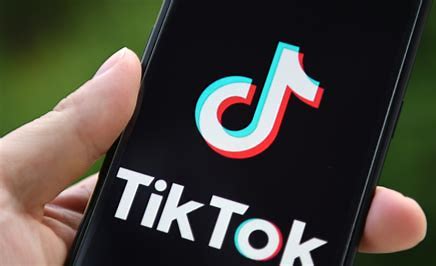General Interest
The challenges facing TikTok as it confronts the US in court

TikTok made good on its promise to challenge a new law signed by President Joe Biden that could result in a ban of the video app in the US.
The company, a subsidiary of Chinese tech giant ByteDance, asked Tuesday for an injunction to block the US government from enforcing the law, calling it “unconstitutional” on First Amendment and other grounds.
The new suit from TikTok alleges that the US law compromises the company’s right to protected speech. It also claims the law infringes on the speech rights of its users.
But the social media giant could find that it is on less-than-solid legal ground, some experts said. The main reason: Its ownership by a Chinese company, ByteDance.
“As a general matter, foreign companies don’t have constitutional rights,” said Jamil Jaffer, director of the Antonin Scalia Law School at George Mason University’s National Security Institute.
Yet Wilson Freeman, an attorney for Pacific Legal Foundation, said his initial reaction to TikTok’s complaint was that it’s a challenge the government must take “very seriously.”
“I’m not surprised they led with the First Amendment claim, as it seems like the strongest of the four claims by far,” Freeman said.
“You can never predict with litigation, but I would not be at all surprised for TikTok to win on that claim.”
One potential problem with TikTok’s First Amendment strategy is that a court could shoot down the idea that content on the platform qualifies as TikTok’s or ByteDance’s own speech.
If a court did validate a First Amendment claim, the company would then have to get over yet another hurdle: proving the new law is intended to influence the viewpoints expressed by TikTok — and not its stated purpose of protecting national security and user privacy.
The company has argued that it is not under Chinese control.
“ByteDance is not owned or controlled by the Chinese government. It is a private company,” TikTok CEO Shou Zi Chew testified to members of Congress in March 2023.
In its complaint, TikTok confirmed a report from the Wall Street Journal that said a sale or divestiture would require the Chinese government’s approval.
It went on to say that the Chinese government “has made clear that it would not permit a divestment of the recommendation engine that is a key to the success of TikTok in the US.”
Free speech rights of TikTok users
A stronger, yet still tenuous, First Amendment claim could come from one of TikTok’s 170 million US users, who may also argue their rights to express viewpoints are being violated.
That argument worked in Montana when a US District Court temporarily blocked enforcement of a state ban on TikTok, siding with the app’s American users. A judge acknowledged the state was entitled to regulate some level of speech but said it did so too broadly to withstand constitutional scrutiny.
The new US law passed by Congress may be tailored enough to avoid a similar fate, according to University of New Haven senior economics lecturer and lawyer Brian Marks.
“I’m not so sure the users’ First Amendment argument will necessarily win the day,” Marks said.
That’s “because the users still have access to platforms where they can provide speech” such as Instagram (META), Facebook, and Twitter.
Jaffer agreed that those competing platforms are likely adequate alternatives. The Constitution guarantees the right to speech only in public forums and not in private forums such as those provided by corporations.
“It would be a significant extension of First Amendment law for the courts to say that people have a right to access or speak on a private forum, particularly one controlled by a foreign company,” Jaffer said.
Ex post facto
Another still weaker claim, the experts said, is TikTok’s assertion in its new suit that the new US law violates the Constitution’s prohibition against bills of attainder, also known as ex post facto laws.
Such laws deem previously legal activity as illegal and then reach back in time to punish violators for past actions.
“Several bills of attainder cases have been brought over the years, and none of them have been successful,” Freeman said. “I would be very skeptical that [TikTok] would win on a bill of attainder claim, but it’s possible.”
To withstand such a challenge, the experts said, the government has to show that the law has a nonpunitive purpose.
According to Congress, the law’s intent is not to punish TikTok but to protect Americans.
“So the question is whether or not that’s actually true,” Freeman said.
Chinese telecom giant Huawei tried and failed to invalidate a US law on those grounds.
In a suit against the US government, the company argued that Congress abused its power by authorizing the National Defense Authorization Act, which prohibited the federal government from purchasing Huawei’s telecom equipment and services.
Texas’s federal District Court for the eastern district ruled against Huawei, finding that although the law singled out Huawei, it wasn’t punitive because it applied only to future Huawei actions.
However, the company did persuade the court that the Constitution’s prohibition against bills of attainder offered protection to US business entities, in addition to US individuals.
The ‘Takings Clause’
There are other arguments TikTok is making in its new suit that will face a lot of pushback.
One is that the government violated the Constitution’s Takings Clause, which says the government cannot assert ownership over private property without just compensation.
Another has to do with TikTok’s assertion of rights under the Equal Protection Clause, which requires that the nation’s laws be applied equally to US citizens and entities.
Freeman is skeptical about the Takings Clause application.
“I don’t know that there are takings here,” Freeman said. “The government is just banning a particular product.”
The counterargument to a claim that the government is violating equal protection, Marks said, is that the US often disadvantages foreign entities in the interest of national security. Tariffs on particular companies and industries are one example, he explained.
Ultimately, Marks said, US courts will look for facts that identify Congress’s true intention in passing the divestiture law and weigh those objectives against any viable constitutional protections that TikTok or its users raise.
“That’s the big tent umbrella,” Marks said. “And I would question that.”


 Entertainment6 hours ago
Entertainment6 hours agoIbadan Tragedy: Ooni’s Ex Wife, Others Face Probe As 32 Kids Feared Dead

 News7 hours ago
News7 hours agoOyo Police Detain Principal Over Ibadan Children’s Carnival Stampede

 Top Stories7 hours ago
Top Stories7 hours agoBREAKING: Abuja Court Delivers Fresh Judgement On Kogi Ex-Gov, Yahaya Bello

 Top Stories3 hours ago
Top Stories3 hours agoBREAKING: Police Arrest Ooni’s Ex-wife, Naomi Silekunola Over Ibadan Stampede…

 Politics6 hours ago
Politics6 hours agoBREAKING: EFCC Summons Edo LG Chairmen Suspended Over Alleged Misconduct

 Entertainment3 hours ago
Entertainment3 hours agoFunke Akindele’s ‘Everybody Loves Jenifa’ nears N300 million in ticket sales

 Politics11 hours ago
Politics11 hours agoNigeria’s Economy Responding Positively To My Policies —Tinubu

 News3 hours ago
News3 hours agoJUST IN: Gisèle Pelicot’s ex-husband jailed for 20 years in mass rape trial







